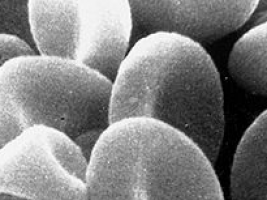
Three studies being presented during the 62nd American Society of Hematology (ASH) Annual Meeting and Exposition report promising results in the use of cutting-edge genome editing and cellular therapies for hard-to-treat blood disorders and cancers.
In the first study, researchers used CRISPR/Cas9 to treat two inherited blood disorders, beta thalassemia and sickle cell disease (SCD).
The trial, which demonstrated remarkable improvements in all seven participants, is the first time this revolutionary approach has been used successfully in these patient populations.
“Given that the only FDA-approved cure for sickle cell disease, a bone marrow transplant, is not widely accessible, having another curative option would be life-changing for a large number of the sickle cell disease population,” said press briefing moderator Catherine Bollard, MD, of Children’s National Research Institute and George Washington University.
“While longer follow-up data are needed, this study is extremely exciting for the field.”
The second two studies point to new opportunities to reach a broader patient population with chimeric antigen receptor T-cell (CAR-T) therapy.
While this cellular immunotherapy has dramatically improved outcomes for patients with some blood cancers, it does not work in all patients.
One of the new studies offers an explanation as to why some patients do not respond to CD19-CAR-T therapy and suggests a way to overcome this resistance.
The other study suggests CD19-CAR-T may be a viable option for some patients with high-risk non-Hodgkin lymphoma who have not responded to standard treatments.
“Getting more data on CD19-CAR-T therapy in the high-risk non-Hodgkin lymphoma population is very important,” said Dr. Bollard.
“We know that CD19-CAR-T therapy does not work for some patients, so these studies underscore the need to better understand the immune evasion mechanisms T cells might be susceptible to and not just focus on their role as a vehicle for the CAR.
Doing so may improve our capacity to administer effective T-cell immunotherapies.”
Source: 62nd American Society of Hematology (ASH) Annual Meeting